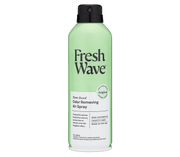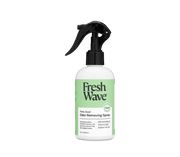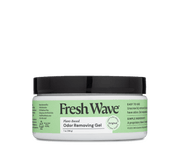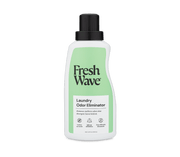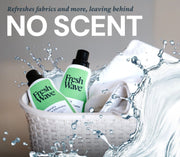Have you noticed that certain smells have more staying power than others? Often, it seems the worst smells are the ones that linger for the longest. That body spray you apply fades so fast, but the fish or curry you cooked for dinner seems to persist for days.
These observations can lead you to wonder, “Can smells get stuck in your nose or is something else at play?” Knowing the answer is the first step toward addressing those troublesome odors that make it hard to fully enjoy your home. In this post, we’ll discuss what causes smell and how to get rid of lingering smells.
Understanding the Science Behind Smell
Before we can get into why some smells stay noticeable longer, you first need to know why we smell and understand the answer to the question, “How do smells travel?” It all starts with specialized cells in your nose called olfactory sensory neurons. Each one has a receptor that can send messages to your brain.
Nearly everything around you is constantly giving off scent molecules. These reach your sense receptors by traveling up through your nose and through a channel that leads from the roof of your mouth to your nose. Incidentally, this is why your sense of smell and taste are connected, and you may not be able to taste foods as well when your nose becomes blocked due to congestion when you have a cold.
When scent molecules come in contact with your smell receptors, they send a message to your brain that allows you to experience and identify the smell. Although our bodies all work the same way, how we respond to smells varies. As a result, your smell preferences vary.
Factors Affecting Smell Persistence
Now let’s get to the answer to the question “why do smells linger in my nose and my home?” A number of factors determine how long a scent persists, including:
- Odor concentration: The amount of odor molecules that things give off varies. When something gives off a larger number, the molecules become more concentrated in the air, making them more noticeable and longer lasting.
- Odor volatility: Some substances are more volatile, meaning that they become vapor more easily and resist diluting. Volatile molecules are more difficult to disperse, so the scents they cause are more persistent.
- Molecule size and shape: The physical characteristics of molecules affect how they move and interact with objects in the environment. Larger molecules have an overall bigger surface area, so they have more places available to stick to surfaces. As a result, they can linger in the environment.
- Porosity of materials: Some things are porous and able to absorb or hold onto odors more readily. Examples of porous things that can trap odors include fabrics, wood and the hair on your head. Generally, it’s more difficult to remove odors from these porous things than from nonporous items like metal.
- Chemical properties: When odor molecules meet other molecules in the environment, chemical reactions occur, causing smells to change or become potent.
Environmental Factors
So far, we’ve looked at the characteristics of scent molecules that make some smells more likely to linger than others, but it’s not just the properties of odor molecules that determine the staying power of scents. The environment also has an impact. Here are some environmental features that contribute to lingering odors:
- Humidity: When air becomes humid, it becomes heavier and more likely to trap odor molecules.
- Temperature: At high temperatures, substances may give off odor molecules more readily, putting more scent in the air.
- Airflow: In well-ventilated areas, the air becomes diluted more quickly and scents will usually fade faster. Conversely, smells are more likely to persist in areas with poor ventilation.
How to Get Rid of Lingering Smells
So what can you do about bad odors that last? The answer lies in modifying the environment and using the right odor-fighting products.
Control the Environment
As discussed, the environment affects the potency and duration of smells. In areas where bad smells are common, take steps to improve airflow. Run the hood ventilation fan in the kitchen and the exhaust fan in the bathroom. Use ceiling fans and oscillating fans, and open windows to increase airflow wherever possible. During the summer months, turn on the air conditioning if your home has it, and run a dehumidifier to control moisture levels.
Neutralize, Don’t Mask
Another reason why scents persist is because all too often we don’t do the right things to address them. When you smell something unpleasant in your home, your first impulse may be to use an air freshener, scented candle or similar product. Most of these types of products work by giving off a more pleasant, prominent odor that masks or covers up the unpleasant smell. Unfortunately, the odor molecules that are causing the bad scent remain, and if the environmental and molecular characteristics are optimal, the smell you want to eliminate may outlast the scent from the air freshener or candle.
To successfully address odors, you need to go to the source and deal with the molecules themselves. The most effective odor-eliminating products don’t mask smells. They neutralize them by combining with the volatile scent molecules and removing them. That’s exactly what the Fresh Air technology that powers Fresh Wave odor-eliminating products does. Our products attract odor molecules, surround them and then produce a chemical reaction that destroys them, effectively neutralizing bad odors.
Eliminate Bad Odors with Fresh Wave
Some smells stay present for longer due to the science behind smell. Fresh Wave Odor-Eliminating products rely on that same science, addressing the root cause of smells with a blend of plant-powered ingredients. Whether you’re concerned with bad odors in the kitchen, pet smells or other unpleasant smells, Fresh Wave offers products that can eliminate them at the source. Explore our selection of odor-eliminating products to find options for all of your trouble areas.


